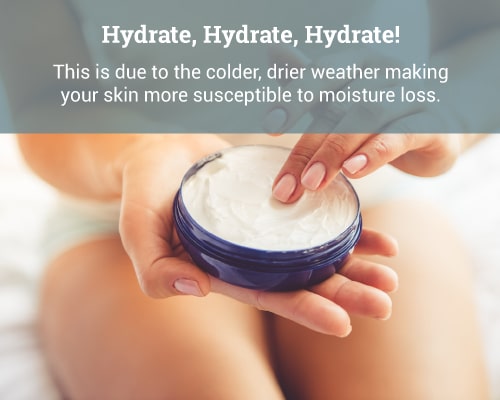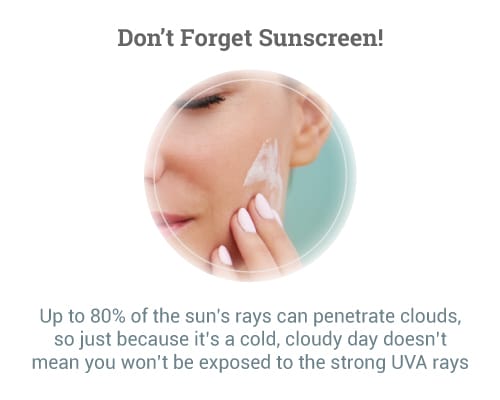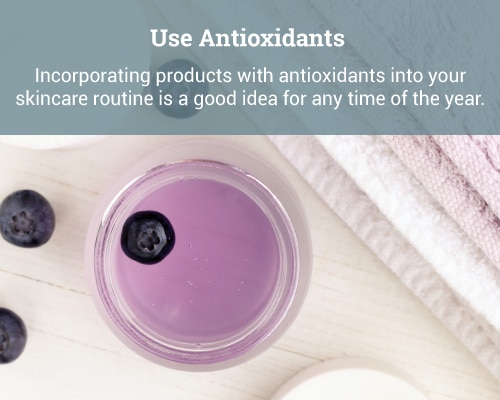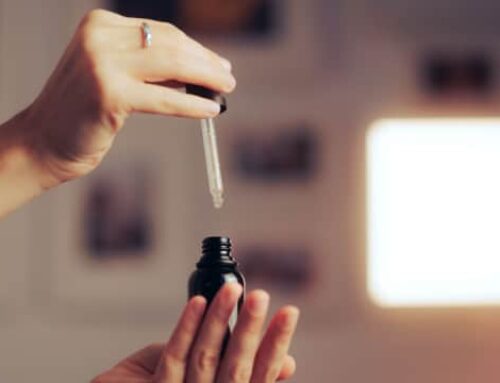Winter is coming, and so are all of the uncomfortable skin conditions that come with it. The bitter cold days of winter bring extreme dryness to the skin of the face, hands, and feet. For some people, it means more than just tight, dry skin. Their skin can become so dry it results in flaking, cracking, and eczema (which can make the skin inflamed).
Here are some tips to winterize your skin care routine, and keep your skin glowing and hydrated all winter long.
Hydrate, Hydrate, Hydrate!
The moisturizers and treatments you use in the summer months are no match for the winter chill. As the weather changes, your skin becomes drier and flakier and can even become red. This is due to the colder, drier weather making your skin more susceptible to moisture loss. To combat this moisture loss, you need to swap out your moisturizer. Gel and lotion moisturizers are commonly used in the summer since they are lightweight and contain a high water content. However, creams and serums are better for cold, dry weather because they provide a stronger oil barrier to lock in moisture.

Don’t Forget Sunscreen!
It is important to apply a broad spectrum SPF on all areas of exposed skin every day. Up to 80% of the sun’s rays can penetrate clouds, so just because it’s a cold, cloudy day doesn’t mean you won’t be exposed to the strong UVA rays that cause aging and potential skin cancer. Not only can sunscreen decrease your risk of skin cancer, it can also reduce signs of aging. Wearing sunscreen can dramatically slow the aging process. A 2013 study published in the Annals of Internal Medicine found that test subjects who used sunscreen daily decreased the speed of the skin’s aging process by 24% compared to the group that did not.

Use Antioxidants
Incorporating products with antioxidants into your skincare routine is a good idea for any time of the year. If you spent time in the sun over the summer, you may have noticed signs of damage on your skin like freckles, dark spots, uneven skin tone, fine lines and wrinkles. These signs of damage are caused by free radicals resulting from exposure to UV radiation. Antioxidants are the body’s defense mechanism against free radical damage and work by neutralizing the free radical molecules. While there are hundreds of antioxidants, those with the most evidence to support their skin benefits include vitamins C, E, and B3 (niacinamide). These three antioxidants have small molecular weights, which allow them to easily penetrate the skin’s surface, making topical application effective.















Leave A Comment